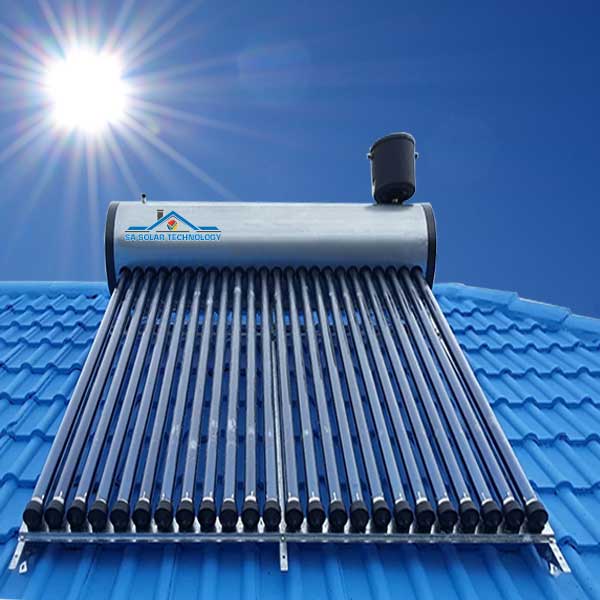Selecting the most efficient water heating system for your home is important for environmental sustainability and overall comfort. Solar geysers and heat pumps have emerged as two of the best options for eco-friendly water heating. In this article, we will take a closer look at how to choose heat pumps and solar geysers for your home.

How Solar Geysers Work
Solar water heating systems convert sunlight to ensure hot water supply. These systems typically consist of panels, pipes, and storage tanks. They work by absorbing heat from sunlight, which is then transferred to the water. Solar geysers are a sustainable electricity-based systems.
How Solar Geysers Save Energy
One of the main benefits of using a solar geyser is their ability to save energy. By using free energy from the sun, they drastically reduce your overall heating expenses. Along with the cost savings, solar-powered systems contribute to a greener future.
Solar geysers are especially effective in locations that receive ample sunlight. During times of lower sunlight, many systems have electrical backup systems to keep your water heated.
Who Should Use a Solar Geyser?
Opting for a solar geyser works well for people seeking an eco-friendly solution. If your home receives a lot of sunlight can take full advantage of solar energy from this heating method.
That being said, you should keep in mind the initial cost of a solar water heater. While they reduce energy bills, the startup costs can be significant. However, many governments offer incentives to help reduce the installation expenses.
How Heat Pumps Work
A heat pump work by transferring heat from the surrounding air to maintain hot water. Rather than creating heat, heat pumps move thermal energy heat pump installer. This makes them a cost-effective solution, due to their energy-saving design compared to electric geysers.
Benefits of Using a Heat Pump
The main advantage to choose a heat pump is its low energy consumption. By using less electricity, heat pumps reduce energy usage by over 50% compared to electric geysers. This leads to significant savings on energy expenses.
Not only do heat pumps save energy, they have a smaller environmental impact. Since they use renewable energy, they reduce reliance on non-renewable resources compared to older systems.
When to Choose a Heat Pump
Installing a heat pump system is ideal for homeowners looking to save on energy bills. Heat pumps work best in environments where temperatures are fairly moderate, but they may require additional heating support in very cold regions.
Like solar geysers, heat pumps require a larger initial investment. However, the long-term energy savings help you recover the initial cost over time.
Heat Pumps vs Solar Geysers
Whether you choose a solar geyser or a heat pump are energy-efficient solutions for eco-friendly water heating. However, each system has its strengths and weaknesses. Let’s look at the key differences:
Power Consumption: Solar geysers use free solar energy, while heat pumps require some electricity but still save energy.
Upfront Costs: Solar geysers may be more expensive to install, but they save money on energy bills in the long run. Heat pumps have a moderate upfront cost.
Best Climate: You’ll get the most out of solar geysers in sunny climates, while heat pumps work well in moderate climates.
Conclusion
Both solar geysers and heat pumps are excellent solutions for people looking to reduce energy consumption. For sunny regions, solar geysers are the way to go. For those in areas with less sunshine, heat pumps can still deliver great energy efficiency.
Whichever system you choose, you’ll be making a smart investment and contribute to a greener planet.